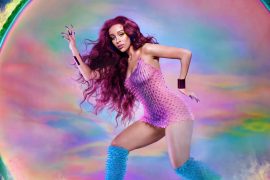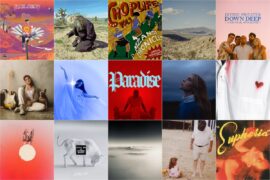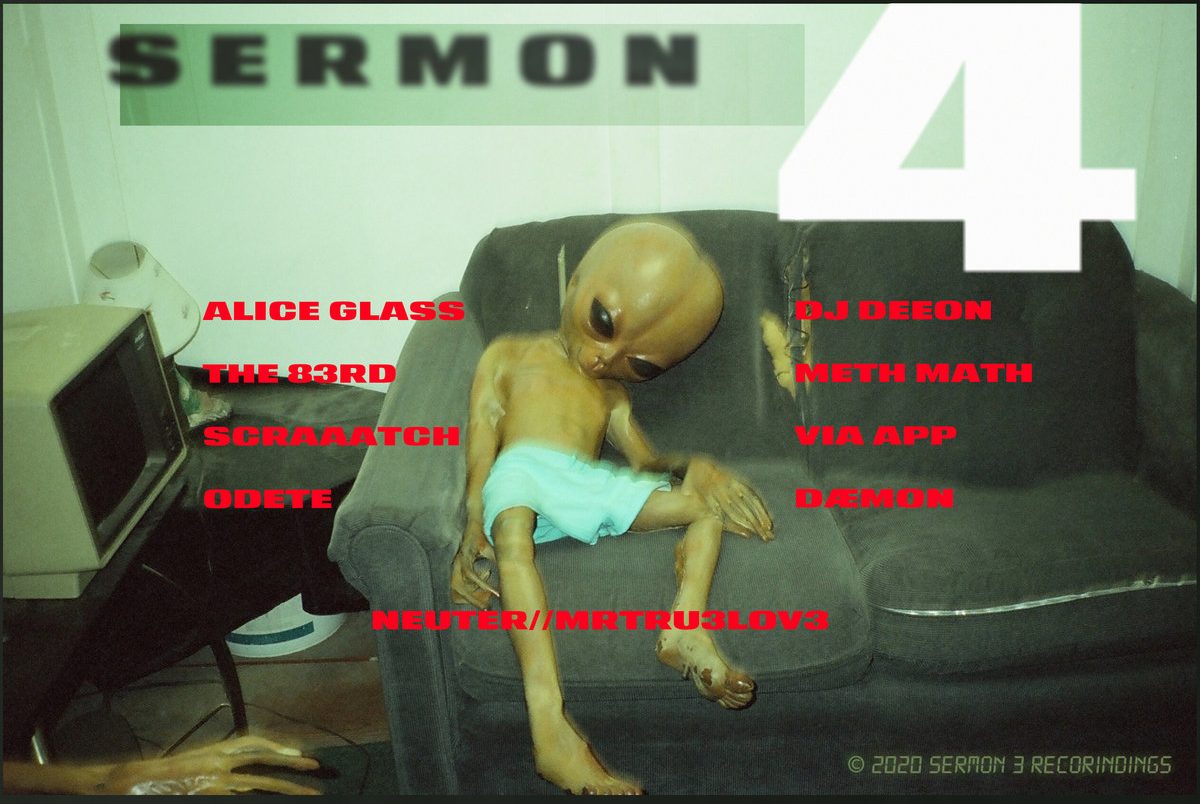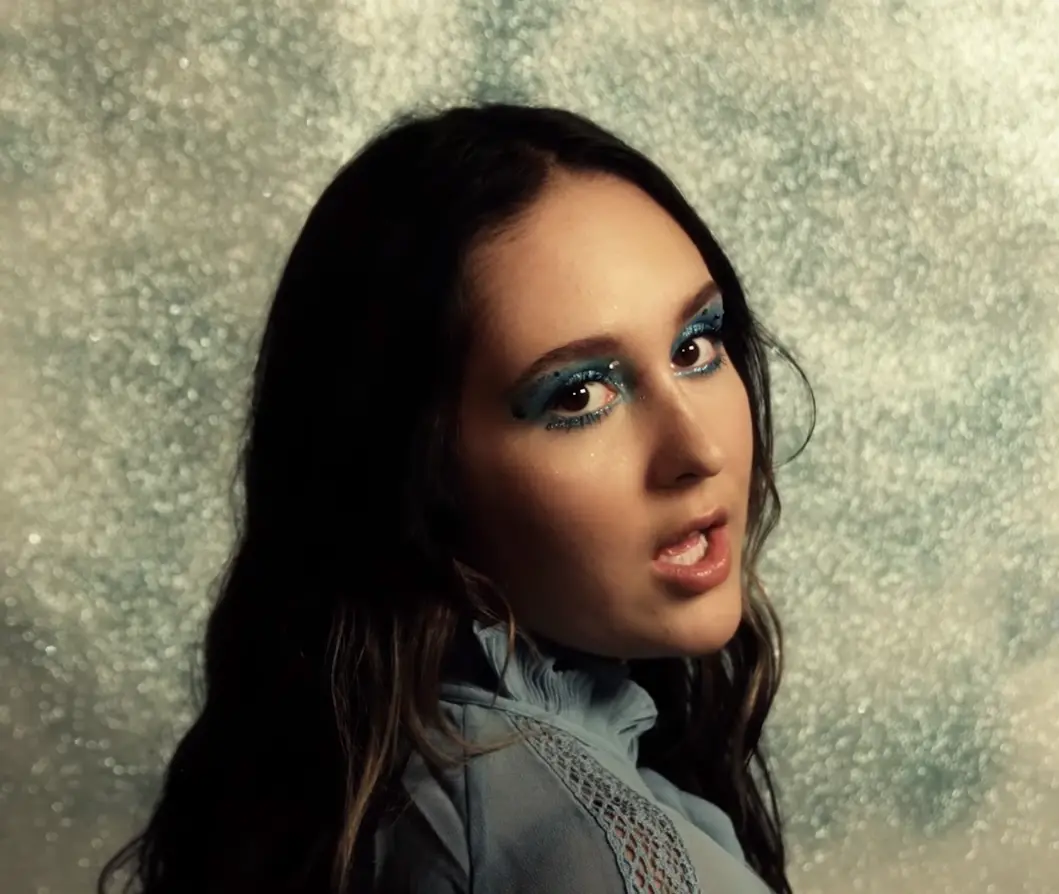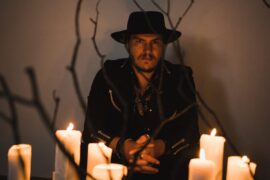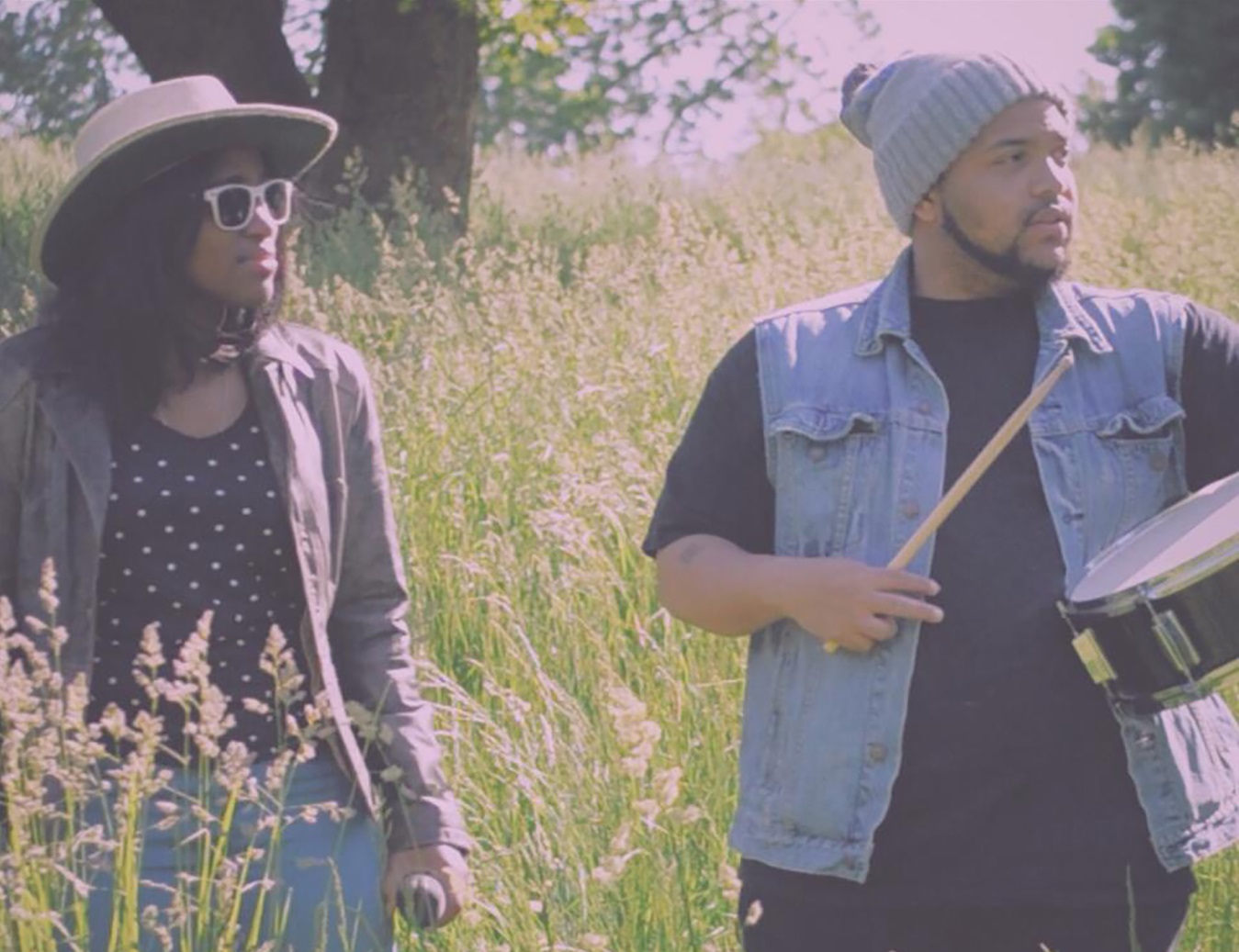Since releasing her debut record, ‘The Parts I Dread,’ last year, Pictoria Vark has been mulling over the mantra, “There’s more to you than the parts I dread, more to live for than I know yet”– letting the words seep into her brain, and learning to accept them as the truth. Now, she dispenses her learned wisdom to Atwood Magazine.
Stream: ‘The Parts I Dread’ – Pictoria Vark
I don’t have to feel responsible for telling the stories of all people; that’s way too much of a burden for anybody. I can tell my story, and my story is one of many.
Sometimes it can be hard to find the silver lining.
When we are deep in the throes of misery, we don’t often see a clear way out. Our inner-compass’ sense of true north gets muddled, and we often find it easier to stay put where we are rather than venture into the unfamiliar.
Victoria Park’s (AKA Pictoria Vark) debut record, The Parts I Dread, deals with circumventing the unknown; the project is a starkly candid coming-of-age narrative that focuses on navigating through the growing pains of adolescence. And while the record was released on April 8, 2022, via Get Better Records, the 8 tracks have continued to go through a genesis of growth, with the themes captured within the melodies remaining relevant more than a year after their conception.
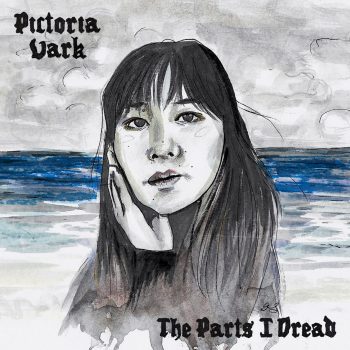
Though, it must be noted that there are many more discrepancies between the artist and her project than just the switching of the first two letters in her name. Victoria Park, the human, is a bright and chipper soul, but Pictoria Vark, the indie folk-punk outfit, is another story. This body of work is a cathartic expression of angst, rage, and sorrow; a mixed bag of human emotions.
“My onstage persona feels way drier than who I am in person, or at least when I’m engaging with others, because I also am a huge people pleaser and I can’t turn that off,” Park shares. “The songs definitely provide me a space to channel different parts of myself.”
In every song Park writes, she re-opens Pandora’s box and unleashes all of the feelings that had been simmering under the surface of her bubbly façade. Unafraid to lose herself to her emotions, Park does not hold back, pouring everything on her mind into her melodies. Though, there’s no brash declaration of vengeance or ill wishes voiced by Park — the musician instead takes a purely reflective stance, preferring to have these thoughts present themselves more introspectively than to have them hurt others in the process of their expression.
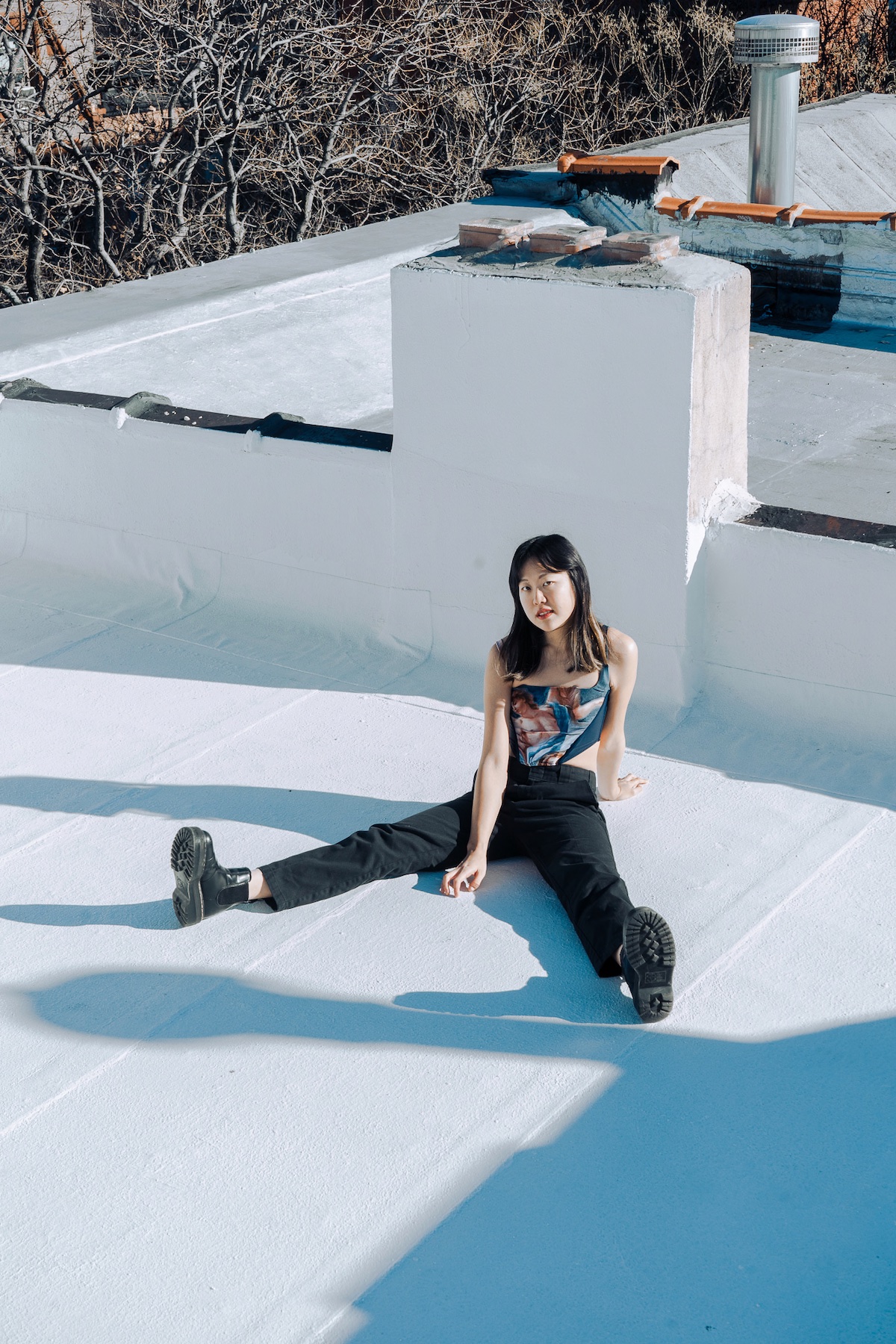
Park showcases this “messier” side of herself in the most clean-cut way possible.
Thrumming bass arrangements skitter across your brain, accompanied by Park’s straightforward-yet-brilliantly-nuanced lyricism. A master of dynamics, Park takes a song from 0 to 100 in a matter of seconds; adeptly capturing the ever-changing intensity of human emotions within her compositions. And while her discography is certainly a tour de force, Park lives her life with humble nonchalance, simply thankful for the ability to create something she can be truly proud of making.
“[Music] was something I was scared to admit to myself that I wanted to do; something I could believe in and not feel silly about,” Park confides. “Honestly, that feeling didn’t really change until last year when I put the album [The Parts I Dread] out.”
Though Park’s enjoyment of the music industry is not just limited to writing and performing — her musical career has led her to explore different parts of the industry that have worked to demystify the processes that occur at labels and various music-affiliated businesses. Aside from being an artist herself, Park currently manages the social media and marketing at Refresh Records, and also works as an interviewer at MAPS Music company — asserting that both experiences have been invaluable when it comes to informing her career as a burgeoning musician.
Park confesses, “[Working in the industry] has made me understand what exactly a record label does, and what it looks like from the label perspective to submit your music to them. It’s seeing it from a lot of different angles. That’s the reason I got into the business side of things to begin with, is because I wanted to make the best decisions for my art, because my art means a lot to me.”
And clearly, Park’s music has come to mean a lot to others as well; superbly transforming her malaise for life’s various periods of transition into something beautiful, Park provides listeners with an outlet for the feelings that they might be afraid to show the rest of the world. As angsty as it is heartbreakingly poignant, Park’s work tells us that there is truly much more to life than the parts we dread.
Continue reading below to learn more about Pictoria Vark’s various experiences working in the music industry, why music is so meaningful to her, and to learn what her favorite Trader Joe’s snack is!
— —
:: The Parts I Dread is out now on Get Better Records ::
A Conversation with Pictoria Vark
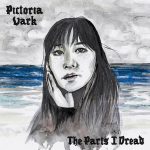
Atwood Magazine: Before we dive in, I want to check in and see how you're doing! What has been going on in your world?
Victoria Park: I am good! I got back from tour [with Maneka] on Monday, and today is Thursday. It has been good, but I feel like I’m just getting settled and I’m so tired — but it’s good to be home. How are you?
I'm good! I just went to Trader Joe's and got some oat milk chocolate. That's my favorite thing to get from there, so I'm having a good day.
Park: Oh my gosh, yeah, I’m going to Trader Joe’s later and I’m so excited.
What’s your favorite Trader Joe’s product?
Park: Oh my goodness. We’re going deep. The honey-sesame cashews; those are really good.
I like the honey-roasted peanuts. Those are also so good.
Park: I wish that could be me. I have peanut allergies. Cashews are fulfilling me for now!
Cashews are so good. You've been playing music for a while, but when did it start feeling like a meaningful outlet for you and why does creating it continue to be a meaningful outlet for you?
Park: It started feeling most meaningful when I started writing my own music and didn’t feel like I was hitting a wall or as though everything [I wrote] was bad. I started trying to write in high school, and I think I played one original song one time with a band. It just wasn’t quite right. It wasn’t until my first year of college where I wrote I think one or two songs and was like, “Oh, I don’t hate this; I can say the things that I feel and I can play them — that’s being a musician. That’s crazy!” Because I had mostly been playing bass for other people up until that point. That has continued to be my favorite part about music and writing songs; that the more I play them, the more deeply connected to them I feel.
I like how you said that you feel more deeply connected to songs, the more you play them. Sometimes artists get detached from their music as they play it over and over again, so I love that you still feel like you have this innate connection to them.
Park: That’s definitely something I’ve been thinking about. Especially in writing new stuff, what could grow the more I say it? As an affirmation, or mantra that you tell yourself. Playing “Demarest” has become that for me. That’s my favorite song to play live, it’s like a good reminder for myself that there’s more to live for that I know yet.
That has continued to be my favorite part about music and writing songs; that the more I play them, the more deeply connected to them I feel.
I love the feeling of having a mantra in a song that you can internalize. You've shared that in college you did a lot of music business internships, and you're now working at Refresh Records. Do you feel as though your work on the other side of the music industry helps inform your artist side?
Park: In some ways it has. Maybe not so much my creative practice, but in how I operationally run my solo project. It has made me understand what exactly a record label does, and what it looks like from the label perspective to submit your music to them. It’s seeing it from a lot of different angles. That’s the reason I got into the business side of things to begin with, is because I wanted to make the best decisions for my art, because my art means a lot to me. The last thing I want to do is be like, “Oh, I don’t really care about business — whatever.” And then you make a whole bunch of decisions that you’re dealing with the consequences of for 10 to 20 years later. But I try to keep it separate from how I write; the root of that as much as I can. Sometimes it can be hard to not think about what you want the album art to be, or how you want the bio to come across. But I am trying my best to shut that off.
I love that. I also work in PR, on the other side of music journalism, so I also see the two sides of the coin. It definitely demystifies both processes for me as well. But like you said, there's that part of it where you want to skew your art toward better promotion, and things like that, where it can be really hard to not sacrifice the integrity of art.
Park: Yeah, totally. I’m sure that must feel really similar. It’s like the Spider Man meme.
I love that, it's definitely like that. What is your favorite side of the music industry that isn't music performance? What do you love doing the most that isn't writing songs or being on stage and performing?
Park: My other job that I have in the music industry is working at my friend’s music sync company, which does placements for music in commercials and things like that. I’m so far removed from the sync process, but my main job there is doing really thoughtful interviews with other musicians about touring and about their creative practices. The company is run by all former musicians and a lot of people who used to tour and so that has both been interesting and sparked my curiosity. I do want to know what all these people have to say about this, and be able to record and transcribe that and share it with that audience. It’s really, really fun.
There's so many hidden parts of the music industry that you don't realize exists. Sync is one of them that I most recently found out about.
Park: Yeah, it’s much larger than I could have imagined. It’s cool to be part of that and peek behind the curtain in that way too.
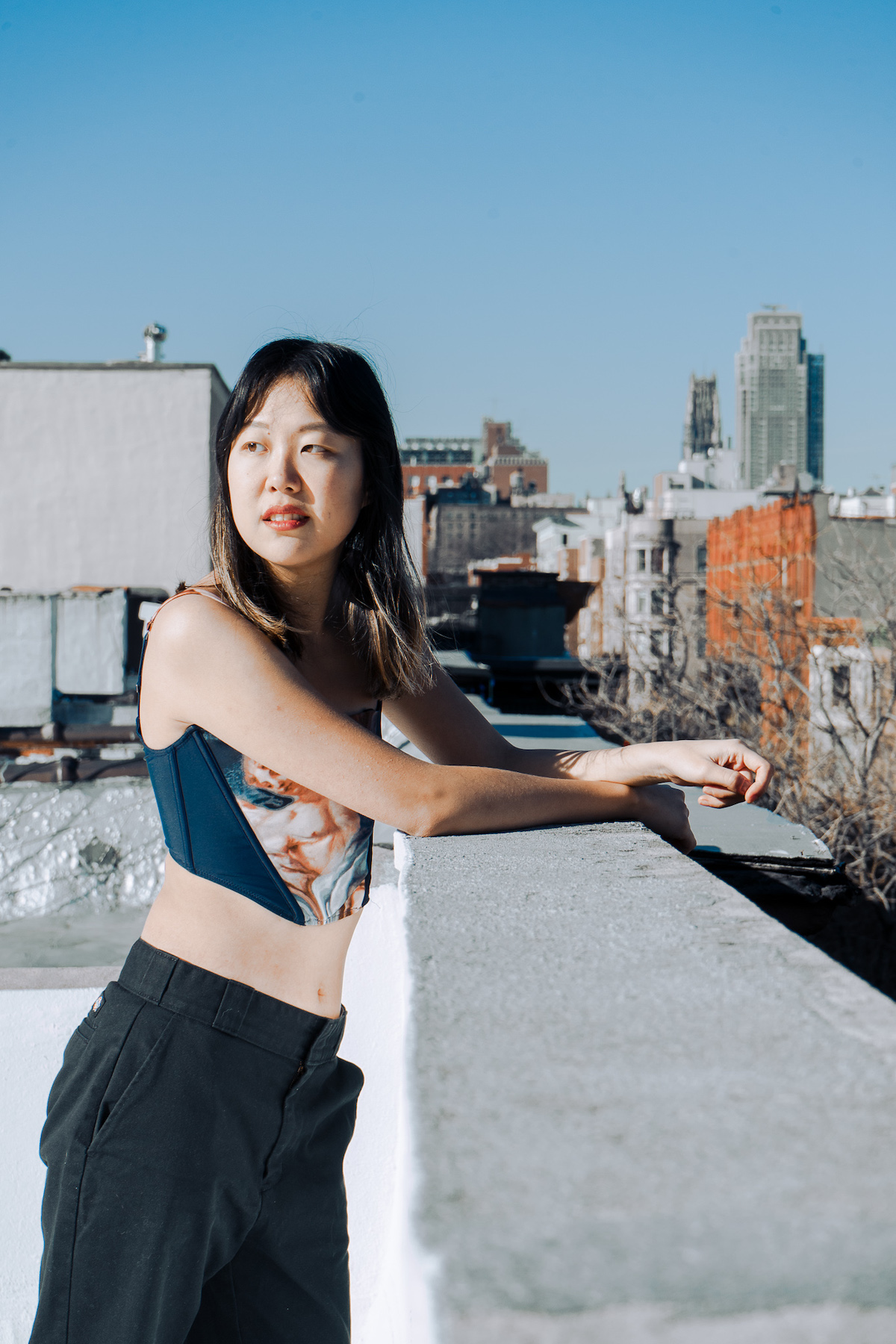
My next question is around just your artistry as a whole. You've been playing bass in bands for a large part of your life, but what was the inspiration that kind of drove you to start a solo project under Pictoria Vark?
Park: This was also in my first year of college. I wanted to be able to play shows without relying on being asked to be in someone’s band or having someone else doing the things. I was like, “Okay, we’re just gonna do this.” Part of me had always wanted to write. There’s different moments in my life. When I was really little, I was taking piano lessons when I was four. I was not interested in anything that my teacher had given me, so we would write little songs about the stuffed animals I would bring to my piano lessons, and we made a book by the end of it. Then, when I was in fifth grade, I had just started learning guitar a little bit. My friend, Kaylee, had a guitar, and I was like, “You have a guitar, and I kind of know how to play guitar. What if we made a band?” It was so bad. We were just kids having fun. That was also just me trying to write music.
And then that came up again in my senior year of high school, but didn’t really solidify itself until college — and even then I put myself down. I was like, “Oh, this is just my thing. I mostly play bass for other people.” But I was trying really, really hard to play shows, and do that whole thing. It was something I was scared to admit to myself that I wanted to do; something I could believe in and not feel silly about. Honestly, that feeling didn’t really change until last year when I put the album [The Parts I Dread] out.
I love what you said about not feeling silly about doing music, because sometimes artists are like, ''Oh, this is just a thing I'm doing. Maybe it'll work out.'' But there's so much strength in having that confidence in what you're doing and knowing that it is right no matter how monetarily successful it is. If there's a gut feeling, there's a gut feeling.
Park: Absolutely. It’s also one of those things where I don’t know how many times you go to a party and meet someone and they say what they do and they’re just like, “I’m an artist.” And there’s no follow up, and they’re not like “But my day job is…” That’s something that I want to work toward.
Definitely. It's so important to be able to be a champion of your work. I love that. You've said in a past interview that it was hard to find a place for your music to be comfortable while you were living in New York. What about Iowa's music scene makes it more comfortable and a healthier space to be a musician?
Park: It’s quite a bit smaller than New York. For someone like me who was nervous to fully commit, I feel like New York is not the place to do that. There’s more space here to try things out and to be welcomed pretty quickly, and find places to play — to be able to work up and build that confidence with my music. That was really huge. In addition to having a cheaper cost of living, I could have more time, because I’m not just working all the time, to just live there.
Particularly, about Iowa City, what’s really awesome is that there seems to be a really strong network of financially supporting musicians there. There’s a few local festivals throughout the year that always have 10 or more local bands that they pay well. There’s also a pretty decent system of grants for artists, and I have a lot of friends who have done that to make their albums or make music videos or things like that. You can have a bird’s eye view, or understand how the structure can really support you and be able to see all of the mechanisms in play. Having it be relatively friendly, as opposed to a place like New York, where it’s big and so nebulous. That has been really, really awesome for me. I’ve been lucky to play some of the festivals. That has been so fun.
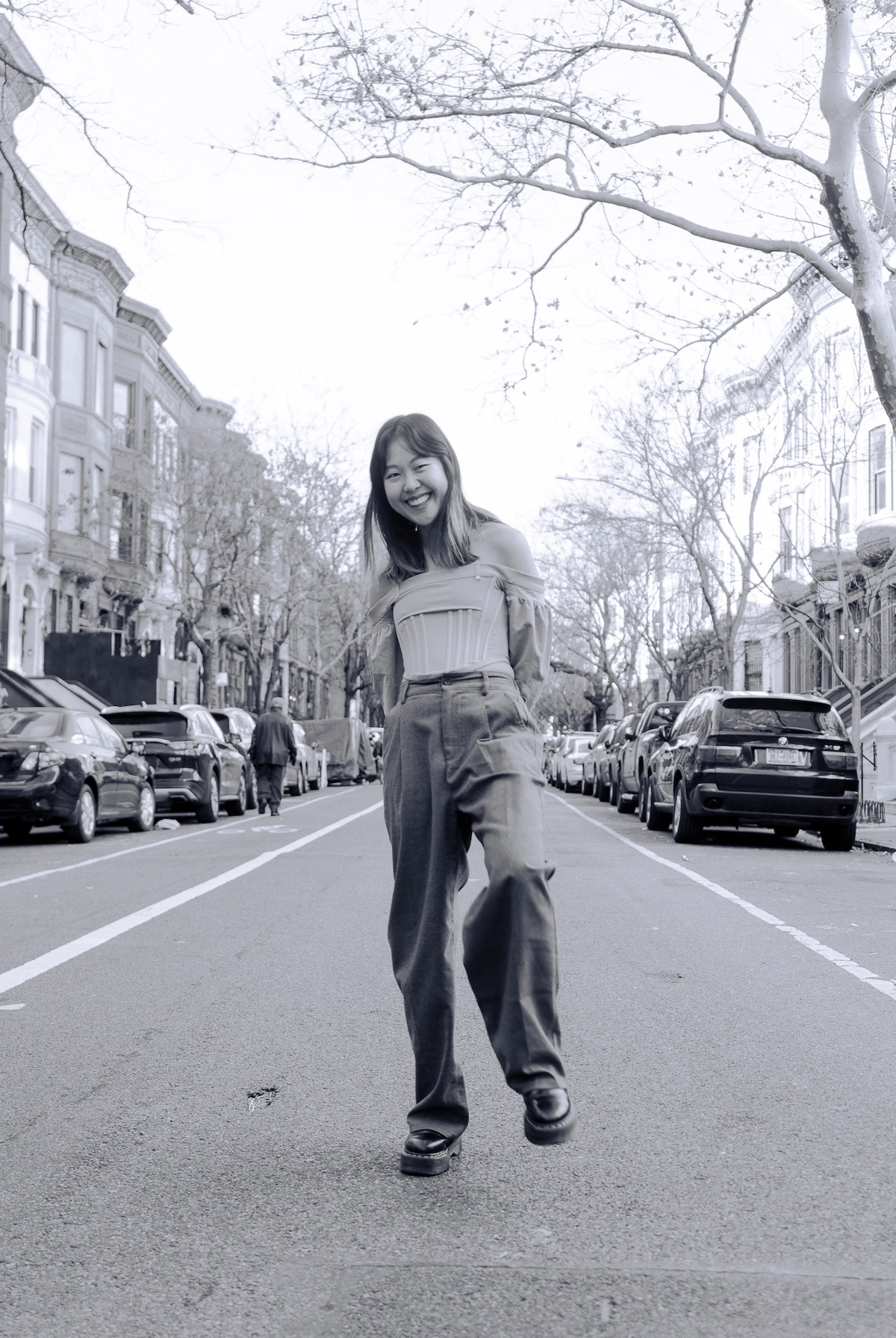
You're a very fierce advocate of all things DIY music. How do you think people can better support independent artists who are doing everything on their own?
Park: It’s paying artists, paying people for their time. That’s the main thing. And also being willing to share knowledge. There was a point in time last year where I was gonna try consulting, and I was like, “Wait, I actually hate this. This is just way more work, and I just want to help people. This doesn’t feel good.” For the people that I know and who have come to me asking questions, I’ve done my best to share everything I know because I know that was something that I did. I asked a lot of questions and was lucky to have people answer some of them. But as for non-musicians, just support your bands — buy tickets to shows when you can afford it. A little goes a very long way.
Definitely. I like what you said about musicians who are already in the game not gatekeeping, because there's more love to share when everybody is in on it. It feels very hostile when people are like, ''I'm not going to show you how to book a gig,'' or something like that.
Park: That comes from a scarcity mindset — if you let someone else in, there’s not going to be enough room for you. That’s not true.
My next question is about just your composition process. A lot of your songs are centered around the bass, because it's your principal instrument, whereas with a lot of other musical compositions, the bass acts more as backup for the guitar. What about the bass has you so compelled to composing on it and playing it?
Park: It’s the instrument that I feel most confident on — that has given me more space to work with it. I’ve tried writing on guitar and it’s just too many strings. It’s not really anything where I feel like I’ve done anything interesting on it, whereas I feel like because I have more technical ability on bass it allows me to do more with it. I’ve written that way, and doing that has really brought it to the forefront. The guitar works in a very different way to play off of the bass as two different melodic voices.
It's so awesome to listen to your music, because you realize how intricate the bass is and how bass lines work.
Park: Thank you!
A lot of your music centers these narratives of transitory periods of life. Do you find yourself sitting down to write about these moments when you're experiencing them? Or is your songwriting process more retrospective looking back on these moments?
Park: In writing this album, it was a mix of both. “Wyoming” I wrote when I was still living in New Jersey before I had even gone there. It was finding out [about the move there]. I either wrote “Demarest,” or finished it when I was in Paris. A lot of these things were added or removed from what I was writing about. That also contributes to that loneliness, and the lack of place, because part of it was that I was having a hard time appreciating where I was because I was fixated on somewhere else that I wasn’t. That was definitely a huge part of it.
I imagine that they were cathartic for you to write, because it's these big drastic changes that you were processing. And as you said earlier, you continue to think about them, and your relationship with them changes as you continue to sing those songs. That's really beautiful.
Park: Thank you. When I was writing a lot of songs for that record, I wasn’t thinking about a record. I was just writing songs and trying to process the big changes, because I didn’t really have any other outlets to do so. I couldn’t change where I was living all that much. Then it slowly became something. I’m glad it has resonated, and that I still like listening to it.
It's so nice to be able to like what you put out, because sometimes you can get tired of it, but it seems that you aren’t, which is so awesome. A lot of the themes in your songs are moody or a little angst-filled. From what I've seen, and observed from talking to you, you're very bubbly and charismatic. Do you feel as though your music is an outlet for this different part of you?
Park: Absolutely. Even my onstage persona feels way drier than who I am in person, or at least when I’m engaging with others, because I also am a huge people pleaser and I can’t turn that off. The songs definitely provide me a space to channel different parts of myself. A lot of punk bands are really, really nice people. And it’s like, “Oh, I thought you were gonna be scary because you’re yelling!” But they’re actually not, because they’re yelling they have a space to be themselves in life. It’s definitely good to have a space for dealing with the messier sides of yourself, or sides that are not necessarily coming out in everyday life.
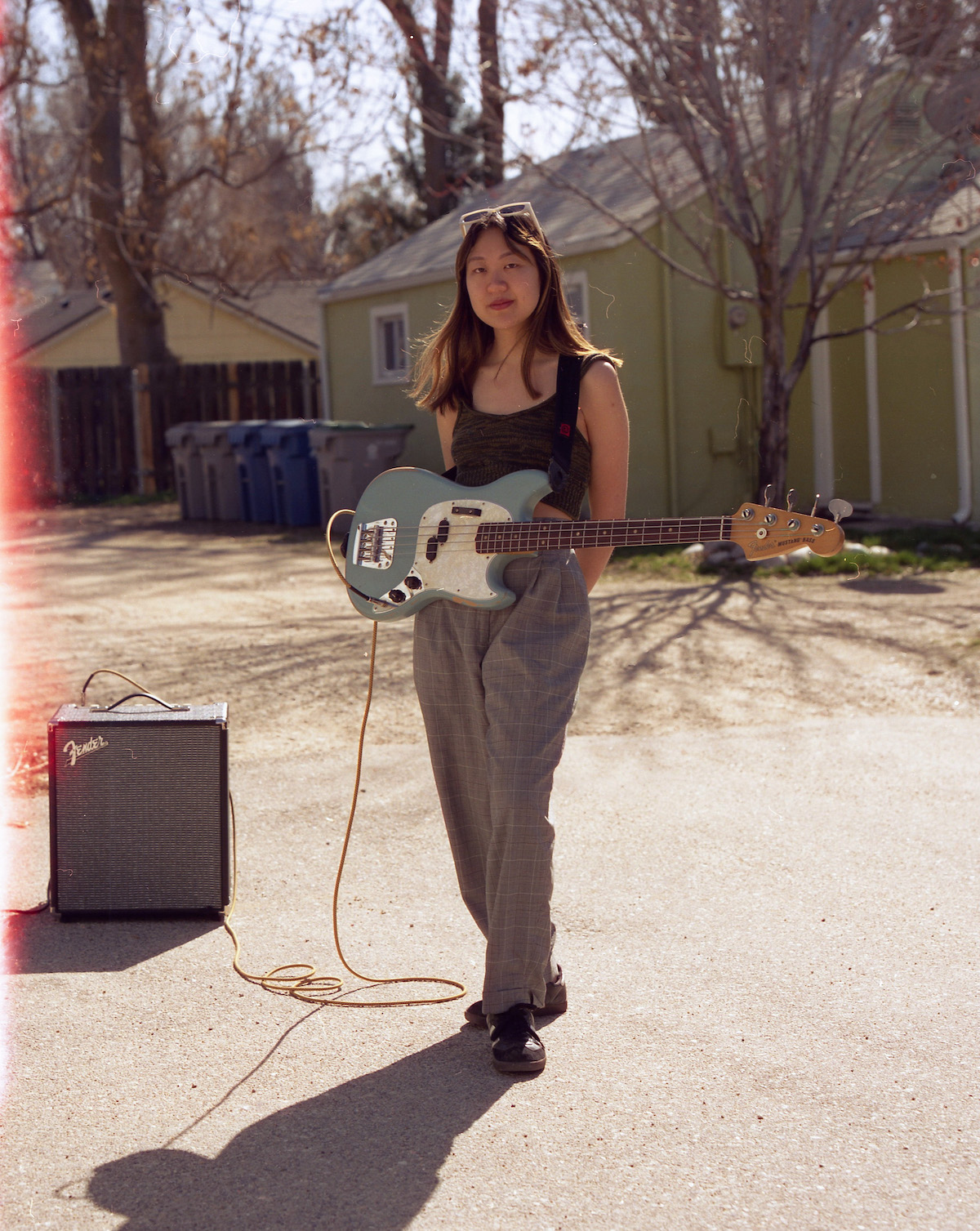
I was actually just having a conversation with one of my friends the other day about how punk concerts have some of the friendliest audiences ever, because everybody's head-banging and getting those emotions out. You've talked a little bit in previous interviews about being seen as a token Asian representative in music, and those situations that come when you're a person of color in an industry that's predominantly White. How do you think the industry can highlight artists of color without tokenizing them?
Park: It really comes down to being willing to take a chance on someone and to do that over just having your friends play a show. That was something I had been thinking about on this last tour, and trying to be really intentional about who was opening and who we wanted to play with. Someone took a chance on me at some point. Especially when you’re not tapped into the nepo-babies of the world, it’s a different way of navigating music and the music industry. I feel really lucky that in being on Get Better [Records], I don’t feel like the token because they’ve highlighted such diversity sonically and diversity in terms of identity and genre. I’m the only one — I don’t have to feel responsible for telling the stories of all people; that’s way too much of a burden for anybody. I can tell my story, and my story is one of many. Having people realize that is really cool.
It's very interesting how the industry paints, not only Asian people, but people of color in general. I'm looking forward to seeing that change.
Park: Me too!
We're actually at my last question! It's a pretty simple one: I like to end my interviews on a happy note, so I wanted to ask what has been giving you joy lately?
Park: Oh, that’s so cute. I love that. Oh my gosh, what has been giving me joy lately? I’m a big Survivor fan, so I’ve been watching a lot of that. I’m also having a toaster waffle phrase. Toaster waffles are really doing it for me. Also being able to sleep in, drink coffee and go on walks sometimes. That has been really, really nice coming home from tour.
— —
:: The Parts I Dread is out now on Get Better Records ::
— — — —

Connect to Pictoria Vark on
Facebook, Twitter, Instagram
Discover new music on Atwood Magazine
© Evan Parness
:: Stream Pictoria Vark ::

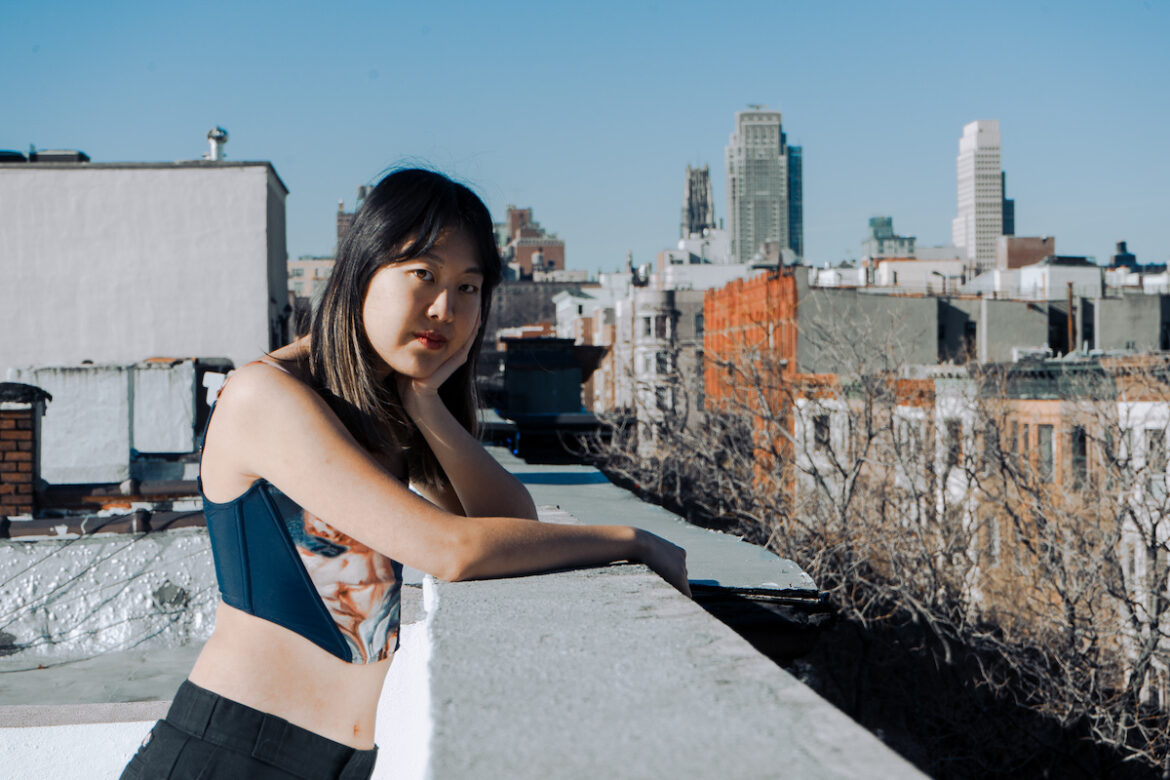
 © Evan Parness
© Evan Parness